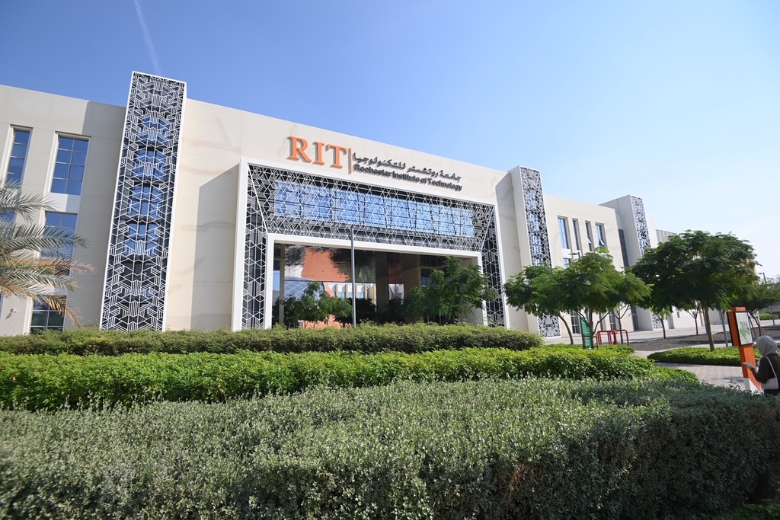RIT Dubai Android Security Study Targets Growing Riskware Threat
A new study from RIT Dubai is set to enhance Android security by tackling one of the platform’s most persistent threats—riskware. Led by Dr Mohammed Al Ani, Professor of Computing Security at Rochester Institute of Technology (RIT) Dubai, the research offers crucial insights into Android malware behaviours, aiming to reduce cyberattacks and boost user safety.
Working in collaboration with faculty from Abu Dhabi University, Dr Al Ani’s team focused on riskware—software that appears harmless but can be exploited for malicious purposes. Despite its widespread presence, riskware has received less research attention compared to more well-known threats like ransomware and trojans.

What Is Riskware and Why Does It Matter?
Riskware includes apps that seem benign, such as planners or utilities, but request excessive access to a device. Once installed, they can open doors to deeper vulnerabilities—downloading ransomware, sending spam, or stealing private data. Speaking about the rationale for the project, Dr. Al Ani said,
“The Android operating system has become increasingly popular, and due to its open-source nature and significant market share, Android poses an attractive target for malicious actors. Although riskware constitutes a considerable portion of Android’s malware vulnerabilities, it has not been studied as extensively as other types of malware such as ransomware and trojans.”
He continued, “Riskware is usually used in one stage of a larger attack; it is a tool that provides a gateway to allow attackers to gain more access than they should, by using applications that look benign but can be misused. Until now, most studies have focussed on the final stages of the attack, but if threats can be detected in the earlier stages there is more opportunity to intervene, which is why we wanted to explore this under-researched area.”
Explaining the threats that riskware can present, Dr. Al Ani said, “Riskware refers to applications that may pose a security threat due to their vulnerability and potential for misuse. For example, you might download a simple application like a daily planner, but if it is granted access to a lot of additional information such as contacts and photos, it can download more malicious malware that could infect your device with ransomware or use it to send spam.”
A New Approach Using Explainable AI
The RIT Dubai Android security research applied a unique blend of clustering and explainable machine learning—a combination not used before in this context. Instead of focusing on the code itself, the study grouped malware families by their behaviours. These included how much memory an app uses and how much data it sends or receives.
This behavioural clustering revealed clear patterns, helping developers and cybersecurity experts spot potential threats earlier in the attack lifecycle—when they are easier to prevent.
Raising Awareness for Safer Digital Habits
Beyond supporting developers, the study also aims to educate Android users. Dr Al Ani emphasised the importance of vigilance when downloading apps.
“Attackers are constantly changing their techniques, and consumers need to be vigilant when downloading applications. Users should be suspicious if an application asks for access to other content on the device that it does not need to fulfil its function. It’s very important to check that the application is from a trusted source before downloading and granting additional access.”
A Step Towards Safer Devices and Smarter Users
The published paper, Behavioural Analysis of Android Riskware Families Using Clustering and Explainable Machine Learning, highlights how early detection of riskware can change the way we prevent mobile cybercrime.
As threats become more complex, RIT Dubai’s Android security research signals a crucial shift toward proactive defence—empowering both users and developers to build safer digital ecosystems.
About RIT Dubai
Established in 2008, RIT Dubai is a not-for-profit global campus of the esteemed Rochester Institute of Technology in New York, one of the world’s leading technological-focused universities with more than 185 years of history. RIT Dubai is now operating from phase one of its new $136 million state-of-the-art campus which provides interactive learning space set over 129,000 square meters RIT Dubai offers highly valued Bachelor’s and Master’s degrees in business, psychology, media design, leadership, engineering, and computing. The curriculum provides students with relevant work experience through an innovative cooperative education program that helps students stand out in today’s highly competitive job market. RIT Dubai offers American degrees issued directly from the main campus in New York, and all of RIT’s programs are UAE Ministry accredited. Students of RIT Dubai also have the unique opportunity to choose to study abroad at the main campus in New York or at one of its other global campuses.
For more information, visit the website:
Further Reading:
Sheikh Mohammed Announces AI as Mandatory Subject in UAE Schools
















